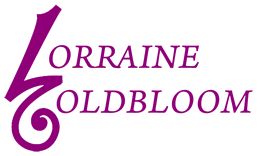I think we all walk around with a certain amount of existence pain.
The pain of being in form. The pain of walking around as a karmic human being, carrying whatever we're carrying. Because of the nature of our issues, it is easy for them to keep us in that existence pain. It takes a fair amount of maturity to really take a look at that and say, “okay, what is this? I'm willing to put this down.”
I realized in putting the issue series together, that this was a topic I was avoiding. This is a very deep topic, it is very hard to talk about the issue of loss and the grieving process. And I realized I kind of put it off because, having known loss, I didn't really have an angle on it. A lot of times when we talk about our issues and our pain, we talk about how to come through it and how to transform it.
Loss is just one of those things that you don't really move on from, it changes you. When we're talking about loss, we're talking about the experience of it. We're talking about allowing for a safe space for us to grieve properly.
I think there is an important distinction between loss and grief.
Loss is pain that one endures. Grief is the process of cleansing the system of sadness. The grieving process is healthy and absolutely necessary and sacred. It is sacred to allow that to happen, even though it's painful, because that is the process through which we bring joy back to the memory.
Without it, pain is almost a way to honor the loss. Because it's so painful, it's easy to get stuck in those different phases.
There are all these ideas about the grieving process that it should be over in a year, that it has these nicely defined stages. There's absolutely validity to that Kubler-Ross model. But I don't think it's so cut and dry for any individual.
I remember the moment when a very dear friend of mine called me with the news that her son had committed suicide. I remember everything— where I was standing. It's those moments that everything you think you know goes out the window. All of this talk about presence, and awakening... then suddenly you get news like that, and it takes your breath away.
What do you do, what do you say? All I could say was, “I don't know what to say, but I'm here. Go ahead.” I didn't know if she would want to tell me the details of what had happened, or if we would just sit silently, it was just whatever she wanted because I had nothing.
When we see loss in someone else, it brings up our own loss.
It brings up our own fears of losing whatever, because inevitably we will all lose, someone we love. Everyone's going to die— no one gets out of this alive. When we see it modeled in front of us, we just freak out a little bit. It's so hard to remember that their process is unique, to stay present and meet them in their process instead of imposing our ideas of what that should look like.
I think when we see pain in front of us, that we are reminded of our own pain, and we tend to do what we would want someone else to do if we were on the receiving end. There's nothing wrong with that, but we have to be able to put our own pain down enough to see what they need.
Whatever loss is, it changes you and you can't pretend that it doesn't.
If you've lost someone you love, or an identity, or a way of living, things are different.
The first thing is that you can't pretend that it's not different. You have to sort of learn the new way, find a way to be open to life in that way.
So often, the nature of loss shuts us down. As we're talking about issues as a way of keeping us in separation, loss does that beautifully. How can you appreciate what's going on around you when you're in so much pain? How can it be sunny on the day of the funeral? That's terrible because I'm in so much pain.
Another thing that's very hard to remember is that you can have joy in your life and loss at the same time. That's where VortexHealing® comes into play. It releases the conditioning and the consciousness component, and it brings in an element of joy.
I remember laughing for the first time after a loss, and then checking in and saying, “wait, how could I be laughing? That's not right.” But a friend of mine said, “No, that's part of it.” That's part of coming back, and the system needs it.
I lost my cat last year. He was a beautiful companion. It was a beautiful passing. He was almost 20 years old.
The love of an animal is so pure, and unmuddled by a lot of the relationship stuff that we have, that my grieving process for him allowed me to grieve on deeper levels. I just sort of allowed myself to let that process go, and it allowed me to explore deeper levels of grief that I had been holding in my body and my system for so long.
I began to really understand what the grieving process was in a way that I hadn't before, because I hadn't really explored grief. It was a beautiful gift, because it was a very pure love. I really experienced the stages and realized it was a way to honor that cherished time we had together.

